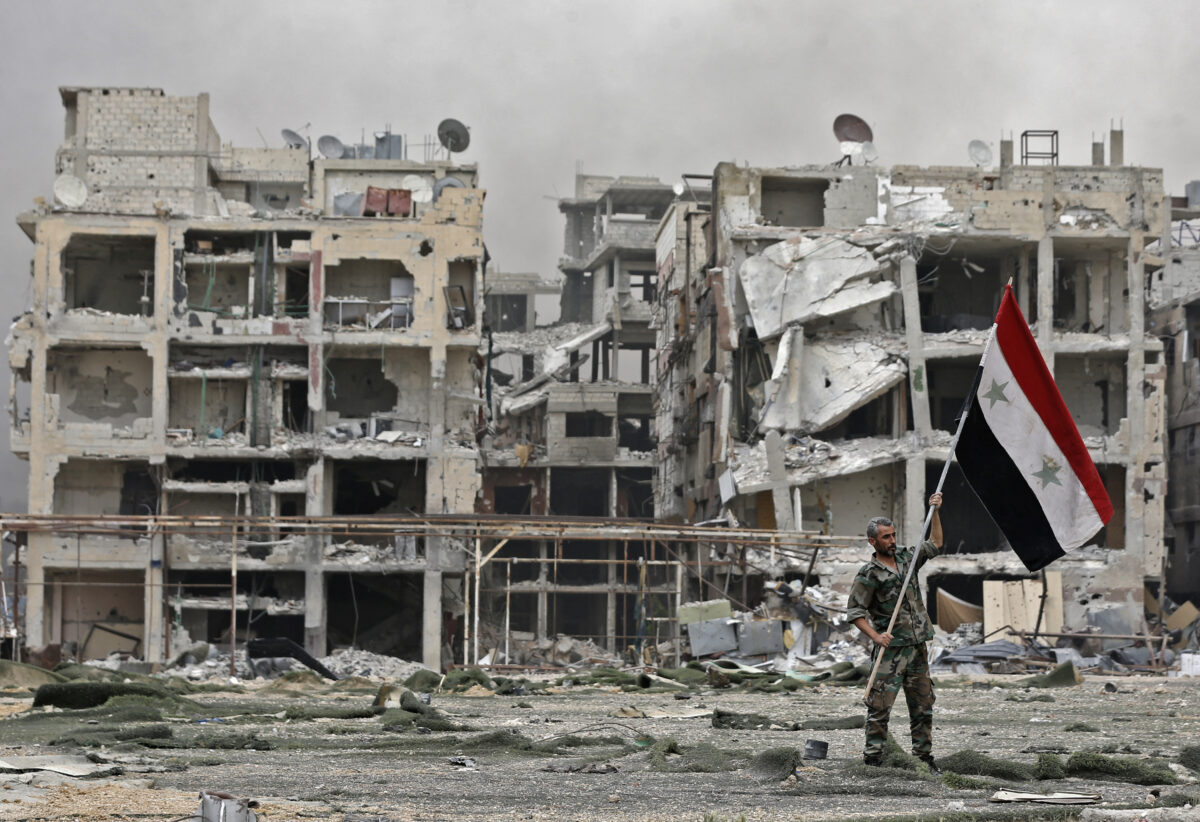
Syrian President Bashar al-Assad’s recent expressions of solidarity with the people of Gaza strike a dissonant chord. These statements, advocating for humaneness and peace, are paradoxical against the backdrop of Assad's record in Syria. This dichotomy is not merely a superficial inconsistency but a profound reflection of the complexities and contradictions inherent in international politics.
Assad’s Political Landscape
Bashar al-Assad’s rule over Syria has been more than just political suppression; it’s a saga of relentless humanitarian abuses that have deeply wounded the country. What is now termed the “Syrian Civil War” – really, the tragic unraveling of a peaceful revolution that began in 2011 – has overwhelmed the nation with ongoing violence. In the decade since, hundreds of thousands have lost their lives. More than 14 million people have been forcefully displaced as refugees, many of whom can’t even consider returning under Assad’s regime, fearing for their safety.
The human cost of Assad’s rule stretches far beyond the battle lines. There’s overwhelming evidence of systematic abuse and torture in government detention centers. Survivors, alongside human rights organizations, revealed the reality of life under Assad, marked by inhumane treatment and brutality.
Across Syria, civilian regions have suffered from the regime’s unchecked aggression. Cities like Aleppo, Ghouta, and Homs have been scarred by aerial bombings and ground assaults, leaving a trail of sorrow and devastation. The regime’s reported use of chemical weapons against its own people highlights a blatant disregard for both civilian life and international norms.
Ironically, the very Palestinian population in Syria that Assad now claims to defend has suffered immensely under his regime. Take the Yarmouk Camp in Damascus, which once was the major refuge for Palestinian refugees. It became a poignant emblem of suffering during the war years. The camp faced multiple sieges, notably beginning in 2013 when Assad’s forces mercilessly cut off essential supplies. These intermittent sieges over the years resulted in dire humanitarian crises, characterized by extreme starvation and a collapse of basic living standards. This ruthless treatment of an already displaced community sharply contradicts Assad’s recent proclamations about Gaza, unmasking a profound hypocrisy in his supposed solidarity.
Re-emergence on the International Stage
The stark contrast between Assad’s domestic record and his recent foray into international diplomacy is not just notable but deeply unsettling. His presence at the Arab-Muslim summit in Saudi Arabia and the upcoming COP28 in Dubai is more than a diplomatic engagement; it’s a calculated move to refurbish Syria’s, and by extension his own, tarnished global image. This re-emergence is riddled with serious ethical complexities.
Assad’s participation could be interpreted as a maneuver, possibly opening doors for future diplomatic and economic engagements. It represents a bid to transition from pariah status to a recognized actor in international affairs.
However, this perspective fails to account for the severity and scope of the atrocities attributed to his regime. To many, Assad’s re-entry is not a step towards normalization but a blatant effort to gloss over a litany of human rights violations. It raises critical questions about the moral and ethical responsibilities of the international community. By accepting Assad in these forums, are global leaders implicitly endorsing his past actions? Or are they prioritizing geopolitical stability and potential alliances over the pursuit of justice for millions of Syrians?
This dilemma highlights the balance between realpolitik and moral imperatives in international relations. Assad’s calculated attempt at rebranding not only challenges the tenets of justice and accountability but also tests the resolve of the global community in upholding human rights as a non-negotiable pillar of international diplomacy.
Navigating Assad’s Maneuvers: A Call for Awareness and Action
The journey of al-Assad from international isolation to his recent attempts at regaining legitimacy presents a convoluted challenge in the realm of international relations. His vocal stance on the Gaza crisis, superficially aligned with global calls for peace, stands in stark and ironic contrast to his brutal legacy in Syria. This dichotomy is not merely a diplomatic curiosity but underscores a perilous issue in international diplomacy: the risk of inadvertently legitimizing controversial figures without addressing their past atrocities.
Assad’s actions exactly like Netanyahu’s are a litmus test for the global community’s commitment to justice and human rights. Assad’s ostensible support for Gaza, while completely ignoring his own regime’s transgressions, is emblematic of a broader trend where leaders exploit international issues to distract from domestic criticisms. This tactic raises serious questions about the integrity of international relations and the standards by which the global community engages with leaders who have a checkered history.
In navigating Assad’s maneuvers, the international community must tread a path of cautious engagement. Solidarity with causes like Gaza should not come at the expense of whitewashing a leader’s past. It’s crucial to differentiate between genuine advocacy for justice and cynical attempts to use global platforms for political rehabilitation. The line between the two can be thin, but the distinction is critical.
In this context, the responsibility to hold figures like Assad accountable extends beyond just political leaders; it also lies with civil society, the media, and international organizations. It’s a call for a more informed and vigilant approach, where global solidarity for just causes is not manipulated to absolve leaders of their actions. The narrative around such leaders must be critically examined, ensuring that their newfound advocacy is not a façade to sanitize their past.
Bashar al-Assad’s political posturing in the context of the Gaza crisis exemplifies the intricacies of international relations. It underscores the necessity for a nuanced understanding of global solidarity, emphasizing the importance of the messenger as much as the message itself. This situation demands vigilance and a principled approach in diplomacy, as the path to peace and justice must remain uncompromised and be guided by an unwavering commitment to human rights and accountability.
Ramzi Abou Ismail is a political psychologist and researcher at the University of Kent.








